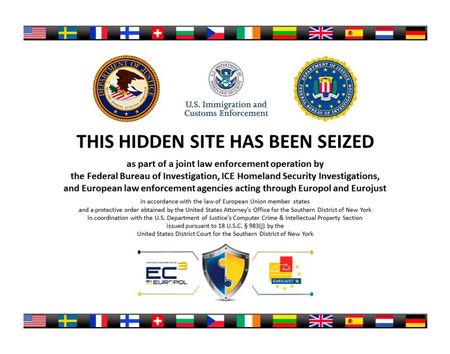By Anthony Deutsch and Nate Raymond
AMSTERDAM/NEW YORK (Reuters) - U.S. and European authorities on Friday announced the seizure of more than 400 secret website addresses and arrests of 16 people in a sweep targeting black markets for drugs and other illegal services.
The developments were announced a day after prosecutors in New York unveiled criminal charges against the alleged operator of underground online drug marketplace Silk Road 2.0.
U.S. authorities called the global sweep the largest law enforcement action to date against illegal websites operating on the so-called Tor network, which lets users communicate anonymously by masking their IP addresses.
Tor, which was created by U.S. Navy researchers to protect the anonymity of national security communications, is used by human rights activists, criminals and others looking to evade surveillance.
Europol, in a statement, said U.S. and European cyber crime units, in a sweep across 18 countries, had netted $1 million (0.62 million pound) worth of Bitcoin, the digital currency, 180,000 euros in cash, silver, gold and narcotics.
The more than 400 websites and domains seized on Thursday existed on the Tor network and were used by dozens of online marketplaces where such things as child pornography, guns and murder-for-hire could be purchased, authorities said.
Sixteen people operating illegal sites were arrested in addition to the defendant in the Silk Road 2.0 case, Europol added, without specifying the charges.
"As illegal activity online becomes more prevalent, criminals can no longer expect that they can hide in the shadows of the 'dark web,'" Manhattan U.S. Attorney Preet Bharara said in a statement.
On Thursday, U.S. authorities said they had shut down Silk Road 2.0, a successor website to underground online drugs marketplace Silk Road.
Blake Benthall, the alleged operator of Silk Road 2.0, was arrested and charged with conspiracy to commit drug trafficking, computer hacking, money laundering and other crimes.
Troels Oerting, head of Europol's cybercrime centre, said the operation knocked out a significant part of the infrastructure for illegal online drugs and weapons trade in the countries involved.
"We have also hit services on the Darknet using Tor where, for a long time, criminals have considered themselves beyond reach," he said. "We can now show that they are neither invisible nor untouchable."
The websites had complete business models, Oerting said, and displayed what they sold, including drugs, weapons, stolen credit cards.

"People paid, and they delivered by the mailman," Oerting said. "There was even a ranking system for reliable suppliers."
(Reporting By Anthony Deutsch and Nate Raymond; Editing by Susan Fenton and Steve Orlofsky)
4_800x533_L_1412522645.jpg)